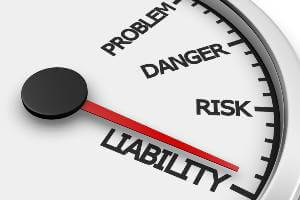Did the At-Fault Party Act Reasonably to Prevent an Injury?
 When attorneys try to determine if someone is liable for an injury, they assess whether the party acted reasonably or unreasonably in the situation that resulted in an injury. If this person failed to act as a reasonable person would have in the same situation, he or she may be liable for damages suffered by the victim.
When attorneys try to determine if someone is liable for an injury, they assess whether the party acted reasonably or unreasonably in the situation that resulted in an injury. If this person failed to act as a reasonable person would have in the same situation, he or she may be liable for damages suffered by the victim.
But how do you know what a reasonable person would have done in the same situation? How do you know if this person’s actions were unreasonable?
These are complex questions, and this is one of the reasons why injury victims should strongly consider seeking help from someone with legal experience. Proving negligence can be difficult and requires a thorough investigation and knowledge of personal injury law.
At TSR Injury Law, we have been helping injury victims in Minnesota for decades and have recovered $1 billion in compensation on their behalf. Call today to discuss your claim with a licensed Minneapolis personal injury attorney.
Free initial consultation and no upfront fees. Call (612) TSR-TIME.
Defining a Reasonable Person and Reasonable Actions
These issues must be assessed on a case-by-case basis because every situation is different. No two car crashes are the same and a car crash case is much different from a case involving a slip and fall, dog bite, daycare abuse, nursing home abuse or medical malpractice.
That said, there are some criteria that may apply across a variety of cases. For instance, it is reasonable to expect people to obey the law. If an injury resulted from someone else breaking the law, you can probably consider his or her actions to be unreasonable. Drivers should obey traffic laws, such as laws about speeding, staying in your lane and respecting the right of way of other drivers.
While slip and fall cases can be complex, one factor that be considered is whether the property owner could have addressed a slip and fall hazard before the injury occurred. It would probably be reasonable to expect the property owner to remove a hazard or rope it off if he or she was told about it, the hazard was in a heavily trafficked area, or someone else was recently injured in the area.
Different standards may be applied when a child is injured in a premises liability case. Children do not have the same ability as adults to recognize dangerous situations. That means property owners have a greater responsibility to protect child trespassers from injury than they would in protecting adult trespassers from injury.
Failing to Act Can Be Unreasonable
Sometimes people are found at fault because of a failure to act, and this failure to act is considered unreasonable under the circumstances. In the example above, the property owner failed to act to remove a hazard. If it would have been reasonable to expect the property owner to do something, he or she may bear liability for the victim’s damages.
In a nursing home, residents often suffer injuries because of the failure of staff members to act. For example, staff members may fail to clear clutter and other obstacles from hallways. These obstacles may cause residents to fall and suffer serious injuries. Another example is when staff members do not monitor residents to avoid constant pressure on body parts. Bed sores arise and the injury is caused.
Was the Risk of Harm Foreseeable?
Another factor to consider is whether the risk of harm from the at-fault party’s action or inaction was foreseeable. If the at-fault party should have known the risk of harm was foreseeable, he or she may have been acting unreasonably.
When assessing whether harm was foreseeable, the person’s knowledge, awareness and mental capacity to behave like a reasonable person must also be considered.
Learn More About the Benefits of an Attorney. Call TSR Today
Injury victims often struggle to secure full compensation for their injuries without help from a licensed attorney. In fact, insurance companies would prefer victims handle things on their own because insurance companies know how to mislead and deceive injury victims.
You do not need to go through the legal process alone. TSR Injury Law’s experienced attorneys are here to help and there are no upfront fees for our services. We have successfully recovered millions on behalf of our clients and are ready to help you.
TSR Injury Law. No upfront fees or obligations. (612) TSR-TIME



